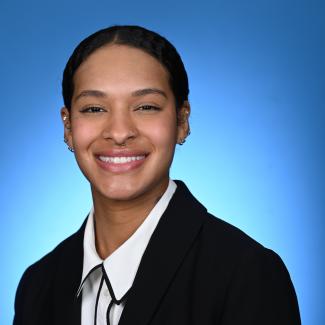Focus
Biography
I am a recent Spelman Graduate with a Bachelors of Arts in economics and political science. I work at Citibank in a 2 year rotational program as an Operations Analyst in NY. My first rotation is in Asset Servicing where I am an income and corporate action processor. I currently manage client inquiries and mitigate risk related to Corporate Action, Income, and Proxy events for global accounts. I resolve complex problems using data analysis and in-depth evaluation. I also compute daily excel reports about breaks in market events.
Before Citibank, I was a apart of the Creating Opportunities for Data Exploration scholars program at Spelman where I worked closely with my mentor to develop analytical skills, develop data science portfolios, and foster novel data-driven approaches to problem solving. The program consisted of student-led projects where to choose my own research topics and lead the research process with little guidance from my mentor. An example of on of my research topics is The Effects of American Demographic Diversity upon US States’ Contemporary Politics, Public Policies, and Social Welfare. We found there was a correlation between black infant mortality rate with states who issues abortion bans. There was also a correlation between states who issues anti LGBTQ policies with medicaid expansion. We used R-studio, found linear regression, made data visualization such as box and whisker, histograms, used r2 to see how strong correlation is.
This program piqued my interest into data science because I got to see how it is very interdisciplinary and you’re able discover relationships between different disciplines.
During my summer breaks I was a canvasser for the ACLU, where I grew a passion for tackling challenging issues such as voter suppression, gerrymandering, and voter restoration. Understanding the role of machine learning in voter registration fraud piqued my curiosity of how data science algorithms and techniques can enhance the democratic process, boost voter involvement, and combat shortcomings in election systems.
I aspire to work for the ACLU as a Data Scientist - Algorithmic Justice Specialist. Beyond voter rights, I want to apply my education to social justice projects that specifically focus on analyzing disparities in housing, criminal law enforcement, employment, immigration, and education.
I would say my biggest strengths are paying attention to detail while still being able to look at the bigger picture, being collaborative, and being able to multi task while maintaining quality work.










